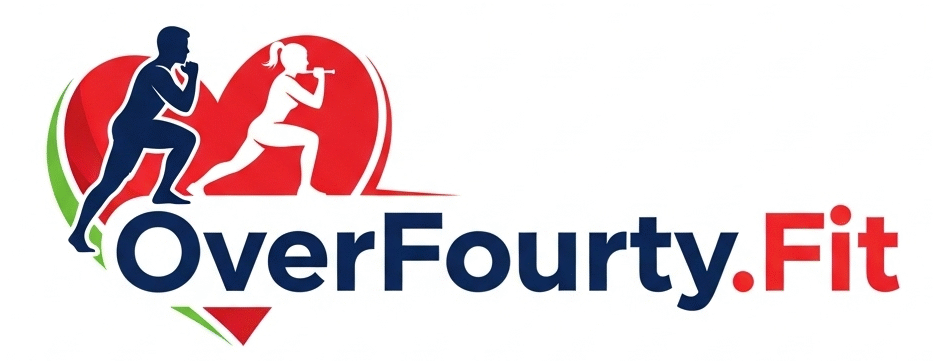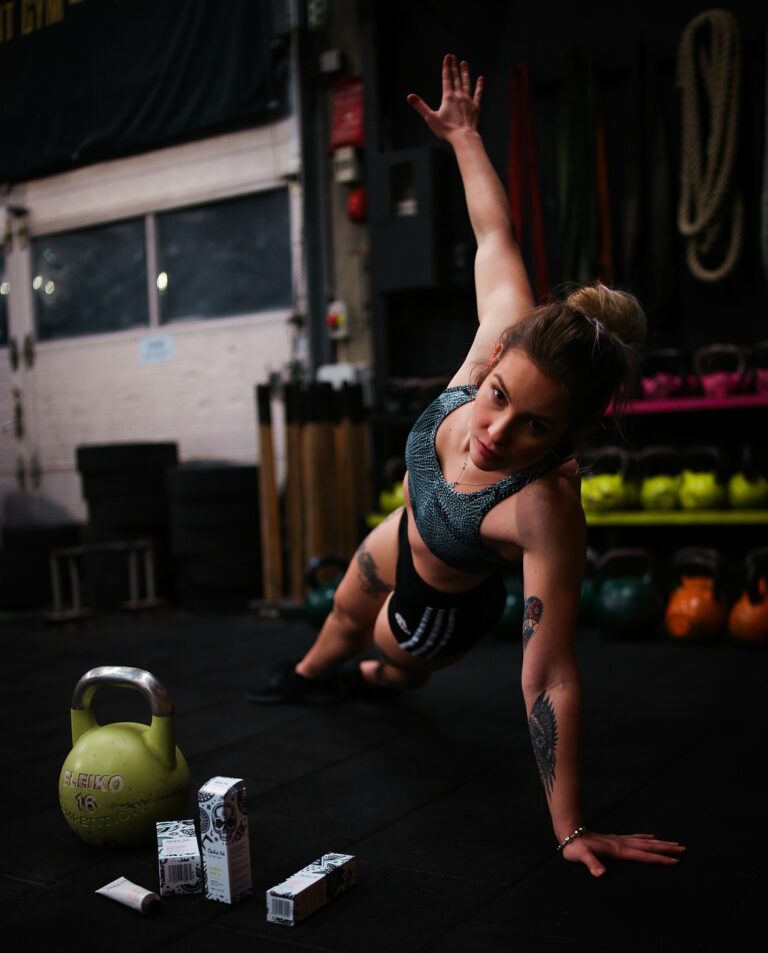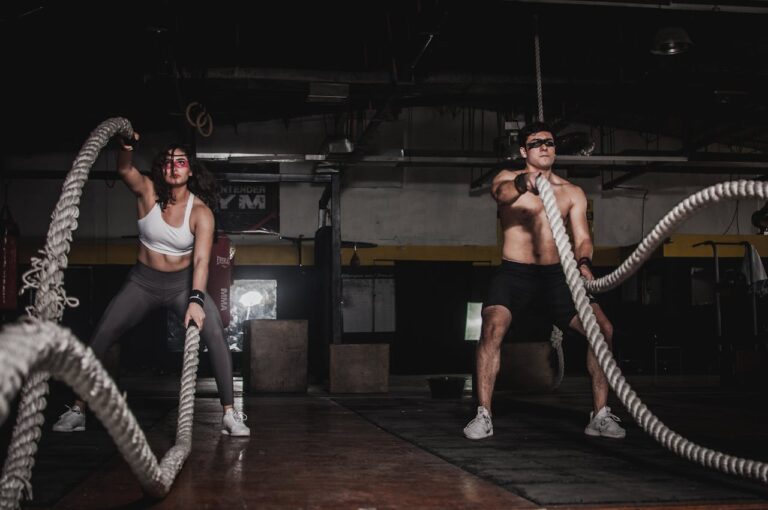Fitness vs Bodybuilding: Which One is Right for You?
The main difference between fitness and bodybuilding is that fitness focuses on overall health, endurance, and functional strength, while bodybuilding prioritizes muscle size, symmetry, and competition preparation.
Both approaches have unique benefits, and your choice depends on your goals—whether it’s general wellness or sculpting a competition-ready physique.
In this guide, we’ll break down the key differences, benefits, and how to decide which path aligns with your lifestyle.
Understanding Fitness vs Bodybuilding
1. What is Fitness?
Fitness is a broad term that includes:
- Cardiovascular health
- Strength training (moderate intensity)
- Flexibility & mobility
- Functional movements (e.g., squats, push-ups)
- Weight management & fat loss
Who is it for?
- People seeking a balanced, healthy lifestyle
- Those wanting to improve endurance and daily functionality
- Individuals focused on long-term wellness
2. What is Bodybuilding?
Bodybuilding is a specialized form of training aimed at:
- Maximizing muscle hypertrophy (size)
- Achieving low body fat for muscle definition
- Preparing for physique competitions
- Following strict nutrition (high protein, controlled macros)
Who is it for?
- Athletes aiming for extreme muscle growth
- Competitors in bodybuilding shows
- Those willing to follow a strict diet and training regimen
Key Differences Between Fitness vs Bodybuilding
| Aspect | Fitness | Bodybuilding |
|---|---|---|
| Primary Goal | Overall health & functionality | Muscle size & symmetry |
| Training Style | Mixed (cardio, strength, mobility) | Heavy weightlifting, isolation moves |
| Diet Approach | Balanced, flexible | High protein, strict calorie control |
| Recovery | Moderate (3-5 days/week) | Intense (5-6 days/week + rest days) |
| Competition | Rarely competitive | Often competition-focused |
Which One Should You Choose?
Choose Fitness If:
You want a sustainable, healthy lifestyle
You prefer variety in workouts (yoga, running, lifting)
Your goal is fat loss or general strength
Choose Bodybuilding If:
You’re passionate about muscle growth
You’re willing to follow strict meal plans
You aim to compete or achieve extreme definition
Common Misconceptions
“Bodybuilding is the only way to get strong.”
Truth: Functional fitness builds strength without extreme bulk.
“Fitness means you can’t build muscle.”
Truth: You can gain muscle with fitness, just at a slower rate.
Final Verdict about Fitness vs Bodybuilding
Both fitness and bodybuilding have merits. If you want a balanced, healthy life, fitness is ideal. If you’re obsessed with muscle growth and competition, bodybuilding is your path.
Next Steps
- For Fitness: Try HIIT, strength circuits, and mobility drills.
- For Bodybuilding: Follow a split routine (e.g., chest/back/legs) and track macros.
Whichever you choose, consistency is key!
FAQs about Fitness vs Bodybuilding
Is fitness better than bodybuilding?
The main difference between fitness and bodybuilding is that fitness focuses on overall health, endurance, and functional strength, while bodybuilding prioritizes muscle size, symmetry, and competition preparation. Both approaches have unique benefits, and your choice depends on your goals—whether it’s general wellness or sculpting a competition-ready physique.
What is the difference between bodybuilding and fitness?
The main difference between fitness and bodybuilding is that fitness focuses on overall health, endurance, and functional strength, while bodybuilding prioritizes muscle size, symmetry, and competition preparation. Both approaches have unique benefits, and your choice depends on your goals—whether it’s general wellness or sculpting a competition-ready physique.
Why are bodybuilders big but not strong?
Muscle size (hypertrophy) and strength are related but distinct:
Hypertrophy develops through continuous muscle stimulation—even with moderate weights—as long as reps challenge endurance and cause micro-tears for growth.
Strength, however, depends not just on size but also on neuromuscular efficiency—how well your brain recruits muscle fibers to generate force. This requires heavy loads and practice in moving weight explosively.
In short: Bigger muscles don’t always mean stronger—training style dictates the result.
Is strength better than muscle?
Strength Training Does More Than Build Muscle—It Could Help You Live Longer
Lifting weights isn’t just about getting stronger or looking fit—it’s a longevity powerhouse. Research shows that people who strength train just 2-3 days a week tend to live longer, with women seeing an especially dramatic boost in lifespan.
But the benefits don’t stop there:
Mood enhancer – Lifting weights reduces stress and anxiety.
Joint & bone armor – Protects against osteoporosis and arthritis.
Metabolic shield – Helps regulate blood sugar and maintain a healthy weight.
The verdict? Strength training is one of the best things you can do for your body—now and decades from now.
What’s the difference between physique and bodybuilding?
Physique focuses on aesthetics, symmetry, and lean muscle definition. Competitors aim for a toned, proportionate appearance rather than maximum muscle size.
Bodybuilding emphasizes maximum muscle mass, size, and definition. Bodybuilders train for volume, muscle isolation, and sculpting the entire body.
In short, physique is about look and shape, bodybuilding is about size and strength appearance.
Why are bodybuilders big but not strong?
Bodybuilders often train for muscle hypertrophy (size) rather than maximal strength. Reasons include:
Higher repetitions and moderate weights for growth, not low-rep max lifts
Isolation exercises targeting muscle shape instead of functional strength
Focus on aesthetics (proportion, definition) over power
Strength is partially influenced by neural adaptations, which are less emphasized in bodybuilding training
Do bodybuilders bulk or cut?
Bodybuilders typically alternate between two phases:
Bulking – calorie surplus and heavy weight training to gain muscle mass
Cutting – calorie deficit with cardio and resistance training to reduce fat while maintaining muscle definition
Both phases are essential for competitive preparation or sculpted appearance.
What are the three types of bodybuilding?
The three main types are:
Professional/Competitive Bodybuilding – focuses on maximum muscle size, symmetry, and contest preparation
Physique Bodybuilding – emphasizes lean, toned muscles, aesthetics, and symmetry
Natural/Amateur Bodybuilding – prioritizes healthy, drug-free muscle development with similar training and diet principles
Other variations include classic bodybuilding or fitness-focused bodybuilding, but these are the core types.







